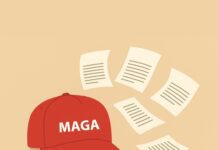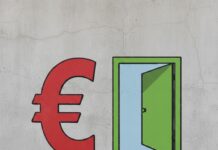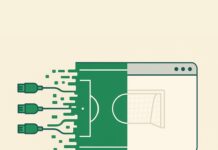Iran will meet Britain, France, and Germany in Geneva on 13 January to discuss its nuclear programme, just days before Donald Trump’s return to the White House, Deputy Foreign Minister Kazem Gharibabadi told Iranian media on Wednesday.
The meeting comes as Trump’s transition team considers various options, including military strikes against Iran’s nuclear facilities, while European powers push for diplomatic solutions.
Iran’s Outlook on Talks
According to Iranian officials, the forthcoming discussions are merely exploratory. Deputy Foreign Minister Gharibabadi described the upcoming meeting as “consultations, not negotiations,” adding that both sides will outline issues and methods for potential future talks.
However, Tehran did not understate the context of the talks. Iranian Foreign Minister Abbas Araqchi called 2025 “an important year regarding Iran’s nuclear issue” in recent Beijing talks with Chinese officials. Araqchi did not explain this assessment or mention Trump’s election.
Weakening Rial After Trump’s Election
The talks unfold as Iran’s currency weakens. The rial dropped to 820,500 against the US dollar, falling 18% since Donald Trump won the November election. This decline adds pressure on Iran’s economy before Trump takes office on 20 January.
Trump’s approach to Iran has evolved. After withdrawing from the 2015 nuclear deal during his first term, Trump now says, “We have to make a deal, because the consequences are impossible”.
The 2015 agreement had required Iran to reduce uranium enrichment in exchange for lifting US and UN sanctions. After Trump ended US participation and restored sanctions, Iran resumed expanding its nuclear activities.
Iran’s Nuclear Enrichment Amid Regional Blows
The Geneva talks follow November discussions between Iran and the three European powers. These Europeans recently condemned Iran’s growing stockpile of highly enriched uranium, which lacks “credible civilian justification”.
United Nations nuclear watchdog head Rafael Grossi observed that Iran has accelerated uranium enrichment to 60% purity, moving closer to the 90% level used in weapons. Iran stands alone among non-nuclear states in reaching this threshold.
The US intelligence community maintains that Iran has not started making nuclear weapons. However, Iran could produce enough enriched uranium for multiple weapons within weeks if Tehran chose to do so.
Tehran continues to deny pursuing nuclear weapons, stating its programme serves peaceful purposes only. The January talks arrive at a time when Iran faces mounting international scrutiny over its nuclear activities and regional role.
The talks come after Iran lost a major regional ally with the fall of Bashar al-Assad’s regime in Syria, which experts say has diminished Tehran’s ability to project power in the Middle East as this loss might cause Iran to refocus on its nuclear program. As Iran faces wars on all fronts, most of which it has lost, in Gaza, Lebanon, and now Syria, the regime’s focus on other pillars of deterrence grows.
Keep up with Daily Euro Times for more updates!
Read also:
Shattered Ceasefire: Lebanon Reports Hundreds of Israeli Breaches
Trade, Tech, and Tension: Storm Clouds
Strategic Survival: Russia’s High Stake Talks with HTS






